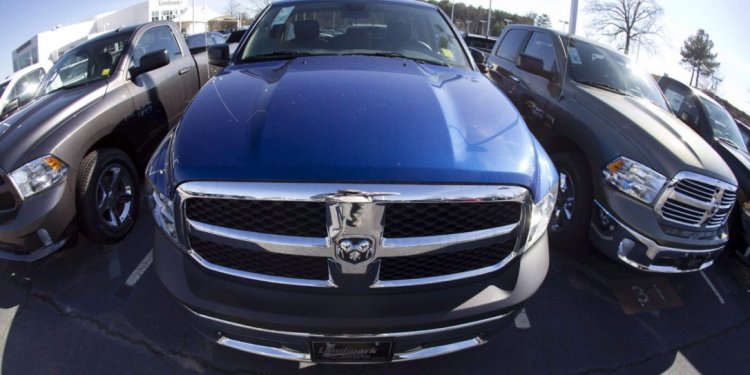
Biggest car manufacturers
 Equally the extensive use of electric cars (EVs) has actually started to appear to be a proper possibility, the top of Toyota, the whole world's biggest automaker, is projecting going beyond that technology.
Equally the extensive use of electric cars (EVs) has actually started to appear to be a proper possibility, the top of Toyota, the whole world's biggest automaker, is projecting going beyond that technology.
Toyota has just debuted its first mass-market hydrogen gasoline cell-powered car, already available for sale in Japan.
Photo credit: ShutterstockToyota president Akio Toyoda stated in a long profile in operation Week your next step is vehicles run on hydrogen fuel cells, and then he thinks Toyota could produce these types of a mass-market automobile in the not-unforeseeable future. The company began run gas mobile development in the early ’90s, nevertheless the cost of producing the automobile ended up being prohibitive within time—close to $1 million each. It's since re-engineered the cells additionally the production process to really make it cheaper.
While other businesses tend to be leaping in to the EV market, broadening their particular offerings, increasing their particular battery packs and seeking at approaches to extent these cars' range, Toyota will likely to be supplying its new hydrogen-fueled vehicle, known as the Mirai, in European countries and U.S. by late the following year. It is currently available in Japan. It costs about $62, 000.
"This is not an alternative to a gasoline vehicle, ” Scott Samuelsen, an engineer and director of the National Fuel Cell Research Center at the University of California at Irvine told Business Week. “This is a quantum step up.”
“The automobile industry can donate to the renewable growth of Earth it self, ” Akio informed Business Week. “At Toyota, we are looking 50 years and even more years in to the future. I really do genuinely believe that [the] fuel-cell car may be the ultimate environmentally friendly automobile."
With over 20, 000 battery power charging you channels within the U.S. and only 13 hydrogen completing channels, changing EVs with fuel cell cars is far someday.
Photo credit: Shutterstock For everyone staying in the current and never 50 many years from now, you will find disadvantages, as organizations invested in taking EVs to your marketplace are merely too willing to point out. While more EV battery-charging programs are appearing all over landscape, particularly in forward-looking California, hydrogen fueling programs are vanishingly unusual and would require a huge financial investment. The fact hydrogen cells can fuel in less than 5 minutes isn't these types of a plus if you fail to find somewhere to do it. With just nine public fueling programs and only 18 in the pipeline for the next several years in early-adopter California—and 13 nationwide, when compared with over 20, 000 electric battery recharging stations, and also the price of a hydrogen fill-up about , dropping , 000 into the Mirai sedan is probably not such a smart option for today.
For everyone staying in the current and never 50 many years from now, you will find disadvantages, as organizations invested in taking EVs to your marketplace are merely too willing to point out. While more EV battery-charging programs are appearing all over landscape, particularly in forward-looking California, hydrogen fueling programs are vanishingly unusual and would require a huge financial investment. The fact hydrogen cells can fuel in less than 5 minutes isn't these types of a plus if you fail to find somewhere to do it. With just nine public fueling programs and only 18 in the pipeline for the next several years in early-adopter California—and 13 nationwide, when compared with over 20, 000 electric battery recharging stations, and also the price of a hydrogen fill-up about , dropping , 000 into the Mirai sedan is probably not such a smart option for today.
“Its infrastructure is constrained significantly more than electric vehicles, where you are able to charge them at home, ” Dan Sperling, director associated with the Institute of Transportation Studies at the University of California at Davis told Business Week.
Not only is billing EV electric batteries becoming faster, but today Tesla founder Elon Musk revealed that their company is taking care of a battery-swapping system, where a spent electric battery is swapped at a charging you place for a totally recharged one out of less time than it requires to fill a tank with fuel, which it is currently beta-testing it in—where else?—California.
Bring swap now operating in limited beta mode for SF to LA route. Can swap battery quicker than visiting a gas station. Tesla blog site out shortly.— Elon Musk (@elonmusk)
Businesses with an interest in EVs additionally dispute Toyota's claim that hydrogen gas cellular automobiles tend to be better for the environment. Musk has known as the gas cells "fool cells" and said at a news summit in Tokyo some time ago that since practically all U.S. hydrogen manufacturing originates from burning up propane, cars like the Mirai are “hydrocarbon-burning cars in disguise.”
Akio Toyoda's reaction: “There’s a higher chance there are numerous sourced elements of hydrogen in the future, including solar technology plus waste."
Ironically, Toyota's own push into EVs, using its investment in analysis and improvement hybrids, plug-in-electrics and higher level battery packs, has actually helped drive increased acceptance and customer feasibility of those automobiles and lured various other people into the area.
















